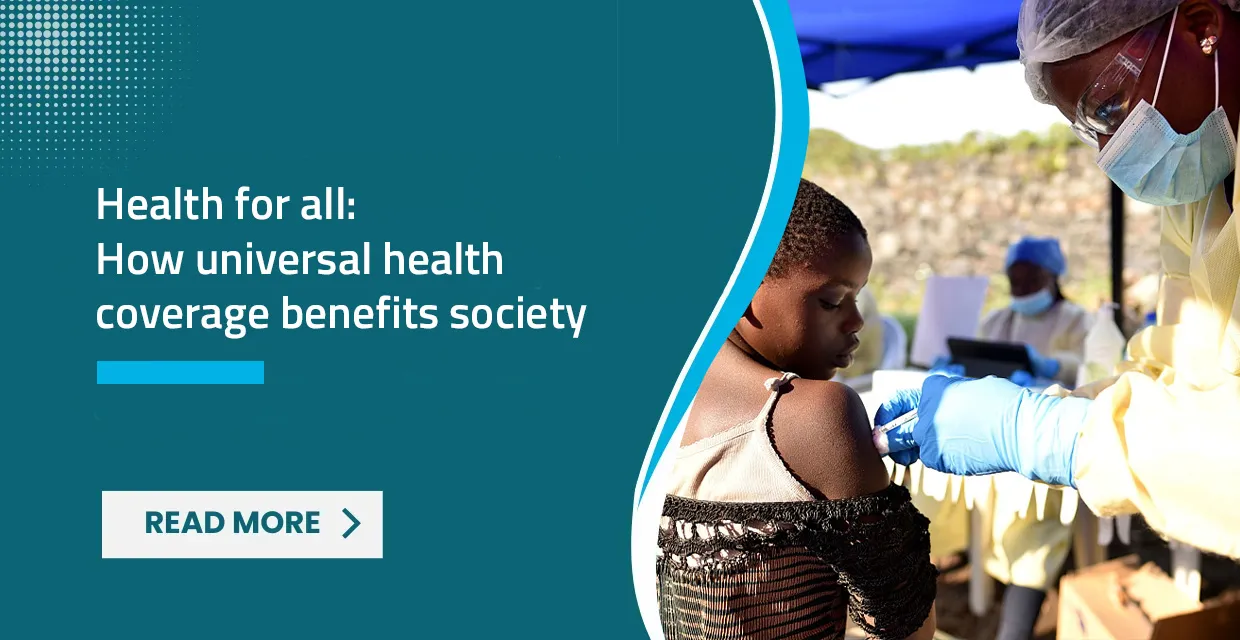Universal health coverage (UHC) is a health care system in which all individuals and communities receive the health services from the best hospital in Kenya they need without suffering financial hardship. The concept of UHC is not only fundamental to ensuring individual and public health but also brings numerous benefits to society as a whole.
1. Improved Public Health
Preventive Care: UHC allows for greater emphasis on preventive care, reducing the incidence of serious diseases and health issues.
Early Detection: With better access to health services, diseases are more likely to be detected and treated early, improving outcomes.
2. Financial Protection
Reducing Poverty: By eliminating or reducing out-of-pocket healthcare costs, UHC helps protect families from the financial burdens of unexpected health expenses.
Economic Stability: UHC can prevent medical emergencies from turning into financial crises for individuals and families.
3. Increased Productivity and Economic Growth
Healthier Workforce: A healthier population is more productive, contributing positively to the workforce and economy.
Reduced Absenteeism: Universal access to health services means fewer days lost to sickness, boosting productivity.
4. Equity and Fairness
Equal Access: UHC ensures that everyone, regardless of their socio-economic status, has access to necessary healthcare services.
Reduced Disparities: It addresses health disparities by providing equal care opportunities for marginalized and low-income groups.
5. Social Cohesion and Stability
Community Trust: A system that cares for all its members equally fosters trust and a sense of belonging in the community.
Reduced Social Tensions: By addressing inequalities in healthcare, UHC can contribute to social harmony and stability.
6. Encouragement of Innovation and Efficiency
Incentive for Improvement: A universal system can drive innovation in healthcare delivery and medical technologies.
Resource Optimization: UHC encourages the efficient use of resources, as the focus shifts to the most effective treatments and prevention strategies.
7. Global Health Security
Disease Control: Universal coverage is crucial for controlling the spread of infectious diseases, as seen in the case of COVID-19.
International Collaboration: UHC fosters global partnerships in healthcare, contributing to international health security.
8. Long-Term Sustainability
Aging Populations: As societies age, UHC becomes increasingly important in managing the health needs of an older population.
Chronic Disease Management: UHC provides a framework for better management of chronic diseases, which are becoming more prevalent worldwide.
9. Healthier Future Generations
Child and Maternal Health: UHC ensures that all children and mothers have access to necessary health services, leading to healthier future generations.
Education and Awareness: With universal coverage, there is a greater opportunity for health education, leading to more informed health choices.
Conclusion
Universal health coverage is not just a health issue; it's a social, economic, and development issue. By investing in UHC, societies can create a healthier, more equitable, and prosperous future. The benefits of UHC extend far beyond the individual, positively impacting society as a whole by creating a more inclusive, productive, and stable environment.



